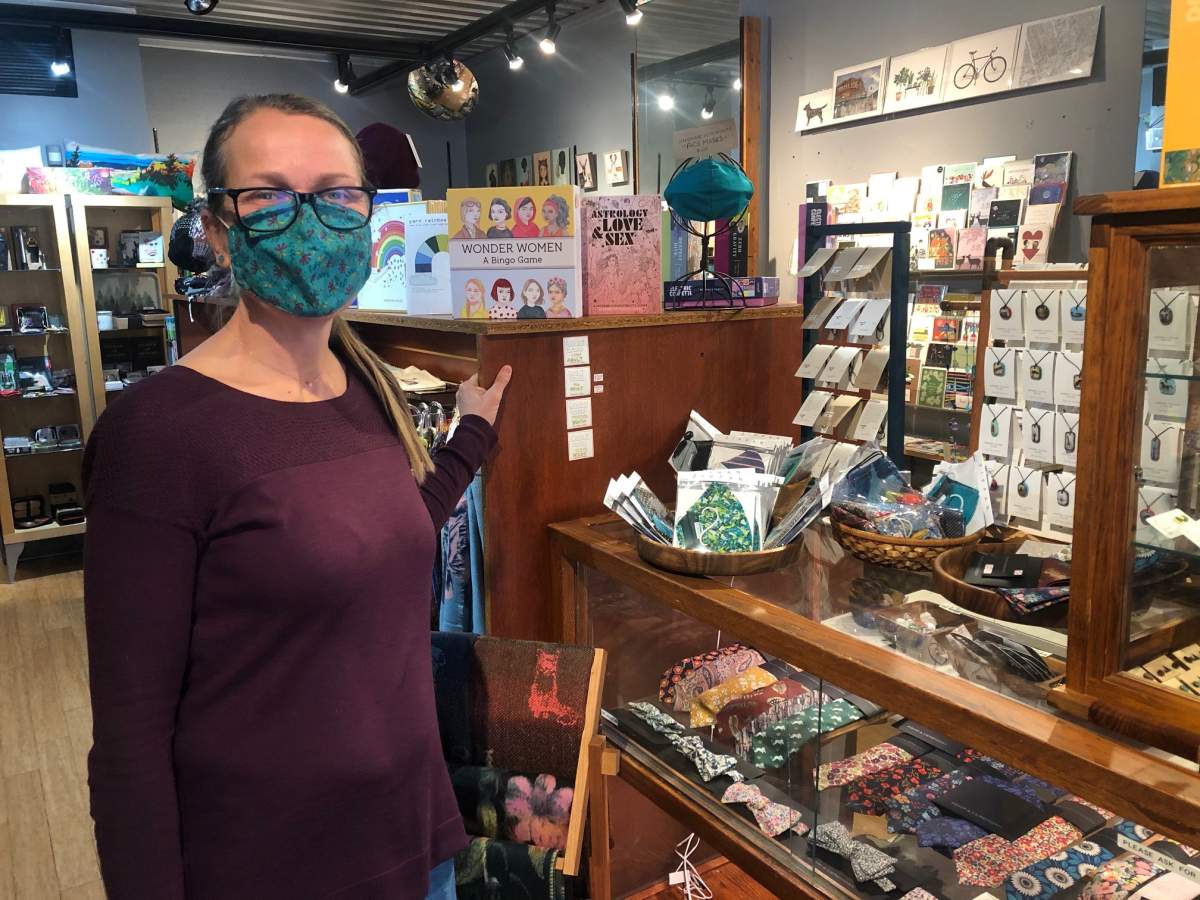With Ontario possibly announcing what is widely expected to be another lockdown, small business owners in Toronto are filled with dread for what the additional restrictions will bring amid the coronavirus second wave.

Toronto’s medical officer of health said on Wednesday that she’s requesting further restrictions from the province to help address the city’s soaring infection rates. But Dr. Eileen de Villa wouldn’t elaborate on what those restrictions are.
Mayor John Tory has repeatedly mentioned retail crowd settings, especially in malls. But the entire retail sector is holding its breath over how far the province may go.
In Little Italy, Rachel Chester said the spring lockdown forced her to work harder than she ever has in the 25 years she’s owned gift shop The Red Pegasus.
“I am not young — if I had to go through that kind of stress again, I don’t know if I could make it,” she said.
Chester is hoping the province won’t take a one-size-fits-all approach if retail is included in the restrictions. Her store is small enough that Chester said she’s able to monitor public health and capacity guidelines better than bigger businesses.

Get weekly health news
A tiered approach would make much more sense, she said, in allowing small businesses to remain open.
“That’s what we should be looking at, not painting everything with one brush,” said Chester. “That the Ikeas, the Walmarts, and the shopping malls aren’t included in community-based businesses that are owner-operated.”

In an interview with Global News on Thursday, Tory said his office has received many photos of crowds gathering in malls. While still insisting retail restrictions were hypothetical, Tory said the city’s request to the province did include the industry.
“I think people would be very surprised if there wasn’t some addressing of retail,” said Tory.
“We’re addressing places that can be crowd scenes,” said Tory. “Not saying, ‘Let’s close the malls down,’ but can you find ways to better manage the way people attend those kinds of premises.”
The problem with that approach is that it further confuses the public, which is currently being told to only go out for essential trips, said retail journalist Marina Strauss.
“There are such mixed messages,” she said. “Telling people to stay home and then keeping the stores open, keeping the malls open.”
Strauss said so many businesses are being forced to make investments to improve personal safety, while at the same time paying for staff, which, with reduced in-store customers, makes it impossible to recoup financial losses. Getting a lockdown out of the way now, she said, would be better for businesses who can’t be expected to limp along with the anxiety of more restrictions to come.
“We’re staring into the barrel of a lockdown, yet we don’t have a lockdown,” said Strauss. “Both emotionally and financially, I think we have to get to the end of that gun and pull the trigger.”

While not saying whether it is being considered again, Tory said curbside pickup in the spring worked for both businesses and customers in the spring and could work again.
Chester disagreed, however. Curbside retail would only be sustainable for a short-term period, she said, adding, it would result in taking on even more debt.
“Doing curbside will probably put a real dent in the viability of my continuing to stay open,” said Chester.
“The closest I can relate to this is the 2008 recession,” said Chester. “Which really almost shut me down.”
She said she was resilient and made it through, but has continued to carry debt from the downturn, which she still hasn’t been able to overcome. Another lockdown, she said, would be potentially ruinous.
“If this came on top of it,” Chester said while leaning against a display of locally made masks. “I don’t know where I’d be.”










Comments
Want to discuss? Please read our Commenting Policy first.